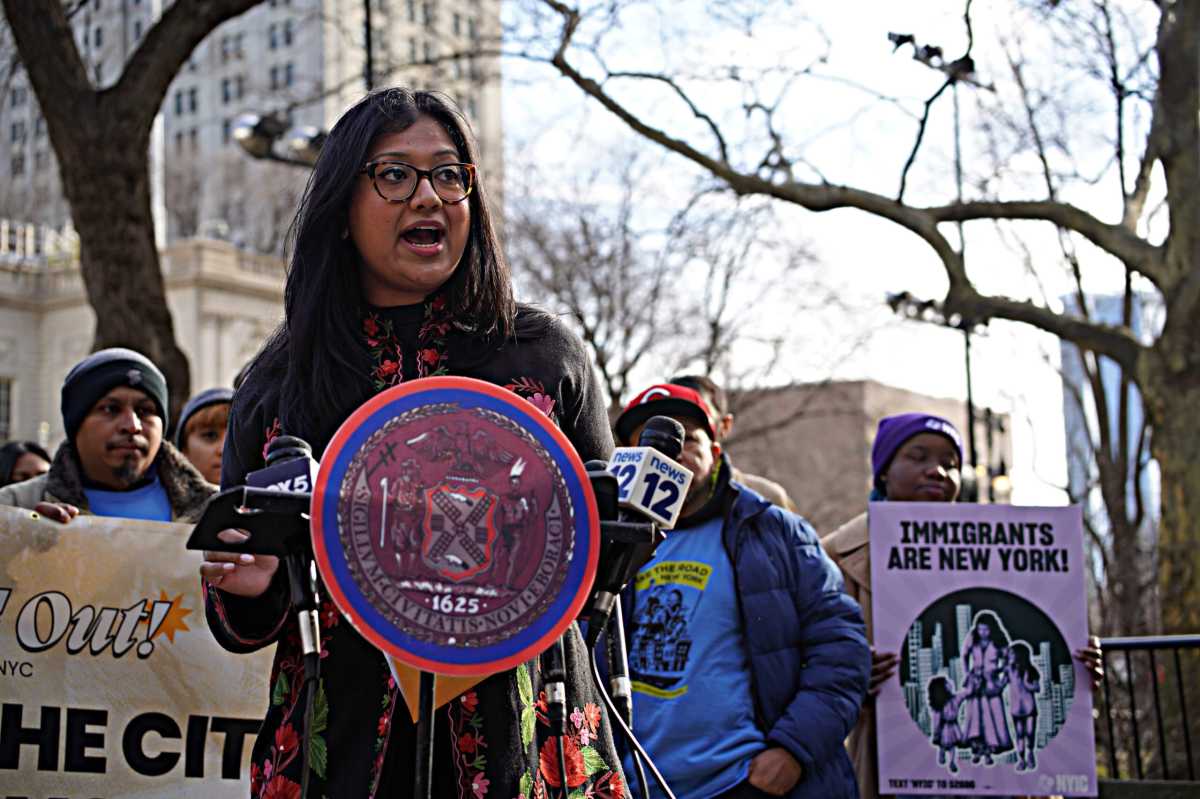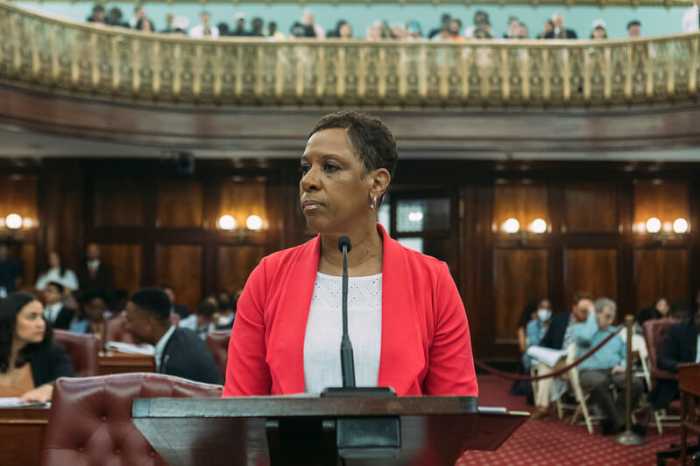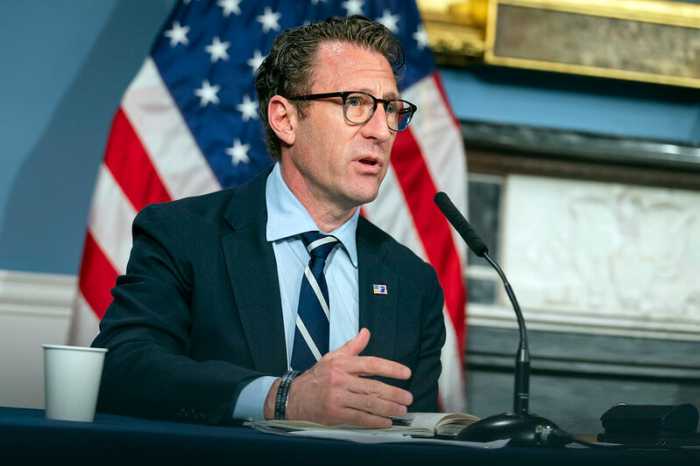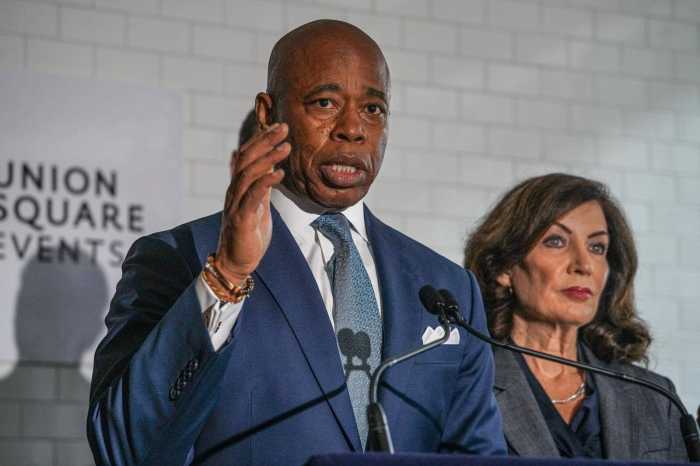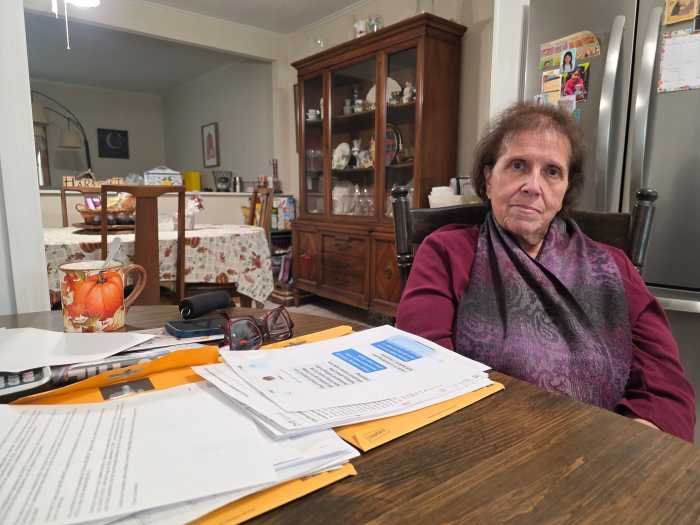As the migrant crisis rages on, the City Council could soon bar Mayor Eric Adams’ administration from imposing limits on shelter stays for recent arrivals.
City Council Member Shahana Hanif (D-Brooklyn) on Thursday introduced a bill that would prevent the administration from continuing to limit the time newly arrived migrants can stay in city shelters.
The time limit policy, which caps the length of shelter stays for single adult newcomers at 30 days (recently, it had been dropped from 60 days), was introduced earlier this year as a means of freeing up shelter beds as thousands of migrants continue pouring into the city every week.
While introducing the bill at the council’s by-monthly meeting on Thursday, Hanif — a frequent critic of the mayor — blasted the so-called 30-day rule as “undeniably cruel.”
“Forcing people out of the shelter makes it harder to apply for asylum, TPS (Temporary Protected Status) and work permits due to address change and lack of stability,” Hanif said. “We need to be setting our new arrivals up for self-sufficiency, not kicking them to the street. And let’s be clear, street homelessness is the inevitable outcome of the 30-day rule.”
The legislation is designed to prevent the city from placing ceilings on stays at shelters run by any agency, including Department of Homeless Services (DHS) shelters, the large-scale Humanitarian Emergency Response and Relief Centers (HERRCs) and the shorter-term “respite centers.” It would apply to single adult migrants and newly arrived families as well as homeless long-time New Yorkers.
“The mayor’s directive is a short-sighted policy and the council needs to step up to prevent a spike in street homelessness,” Hanif added.
City Hall rebuttal
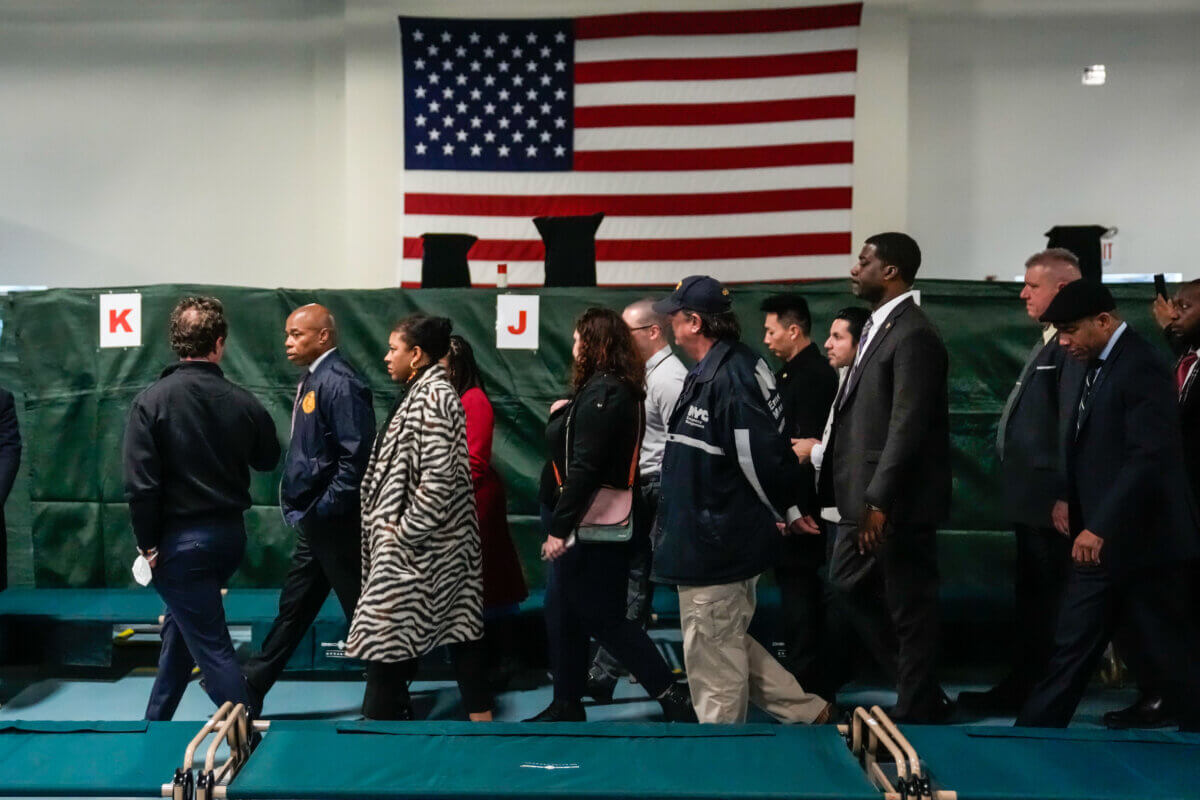
The bill is already getting a cold reception from City Hall.
Mayoral spokesperson Charles Lutvak, in an emailed statement, said the legislation is “disconnected from the reality” the city is facing every day. With more than 63,000 migrants still in its care and roughly 10,000 more arriving in the five boroughs each month, and a new surge at the border in recent weeks, the city is “at its breaking point,” he said.
“Simply put, the status quo cannot continue, especially without more help and resources from our state and federal partners,” Lutvak said. “While we always look for ways to work and partner with the council to find solutions to issues, including with the asylum seeker crisis, this bill, as described, if passed, would hurt the city’s response to this crisis.”
Lutvak also pointed to the “intensified” case management that is paired with the limit, which he said is intended to leave migrants “well-equipped” to exit city shelters.
Potential showdown looms
Given that the mayor must sign all council bills into law, it is possible the legislation is setting up another fight between the two sides of City Hall, echoing a showdown earlier this year over legislation to expand access to city housing vouchers. The mayor vetoed that legislation, but he was later overridden by the council.
The administration began capping single adult migrants’ time in shelters in July, giving out notices to those who had been in its care the longest that they had 60 days to find “alternative housing.” Those who cannot secure housing outside the shelter system must return to the migrant intake center at the Roosevelt Hotel in Midtown Manhattan to get a new shelter bed.
Late last month, the mayor’s office announced it was shortening the window for migrants to exit the shelter system from 60 days to just 30 days.
The policy has been billed as a way to help migrants find more permanent housing and no longer be dependent on the city due to its inclusion of stepped-up case management services.
According to administration officials, as of Wednesday, 13,500 migrants have so far received 60-day notices and 2,100 have received 30-day notices. The notices have led to roughly 1,500 to 2,000 migrants leaving the city’s care each week, officials said, which has slowed the growth in the shelter population.
But if the current surge continues, Deputy Mayor Anne Williams Isom said at a migrant crisis briefing on Wednesday, the progress made so far will be lost.
“If we continue to get more and more through the front door, we can’t even really start to see our strategies bear fruit because we’re getting sort of the amount of people that are coming to the front door,” she said.
Read more: Fatal Brooklyn Shooting: Police Search for Suspects



